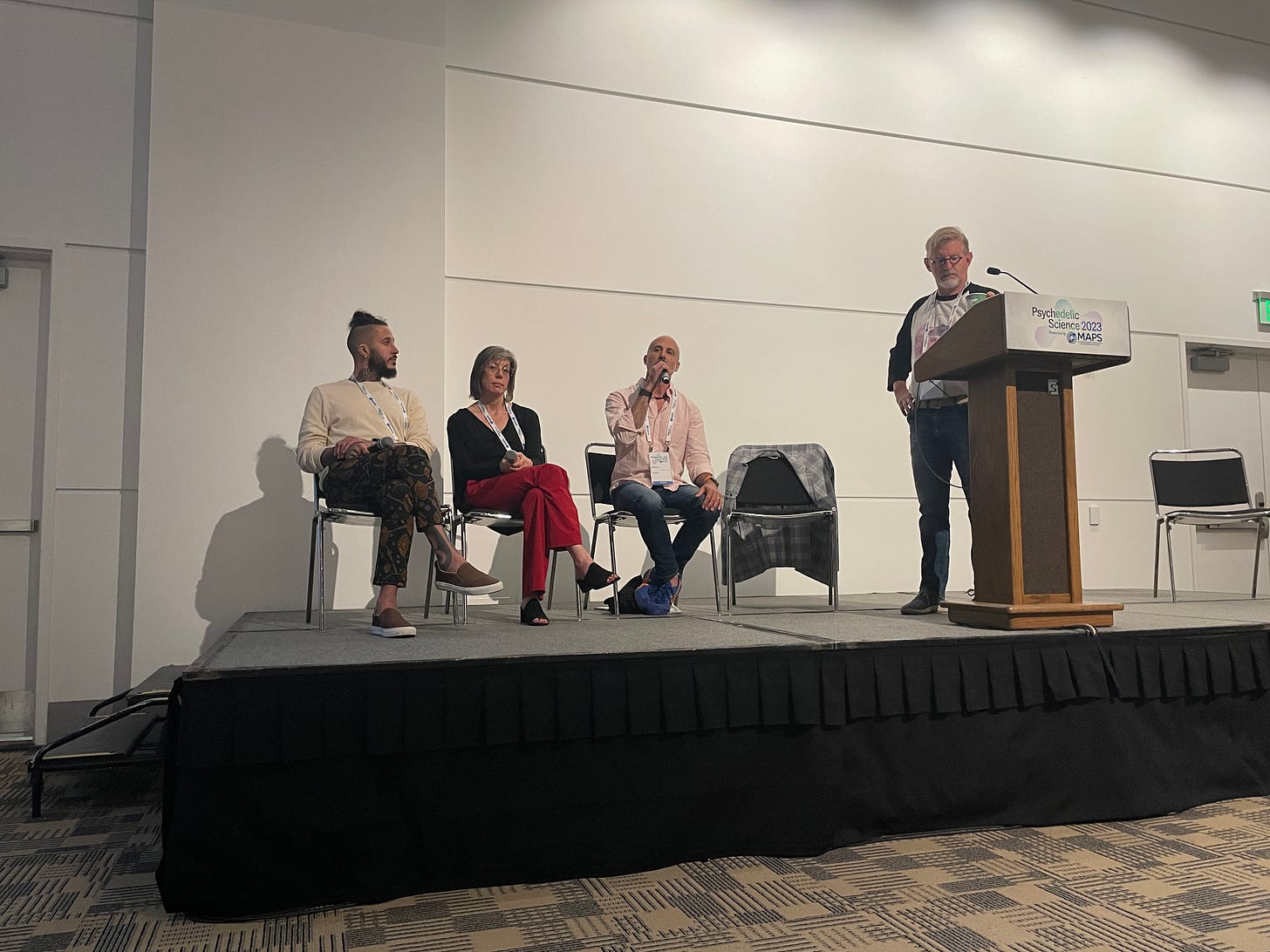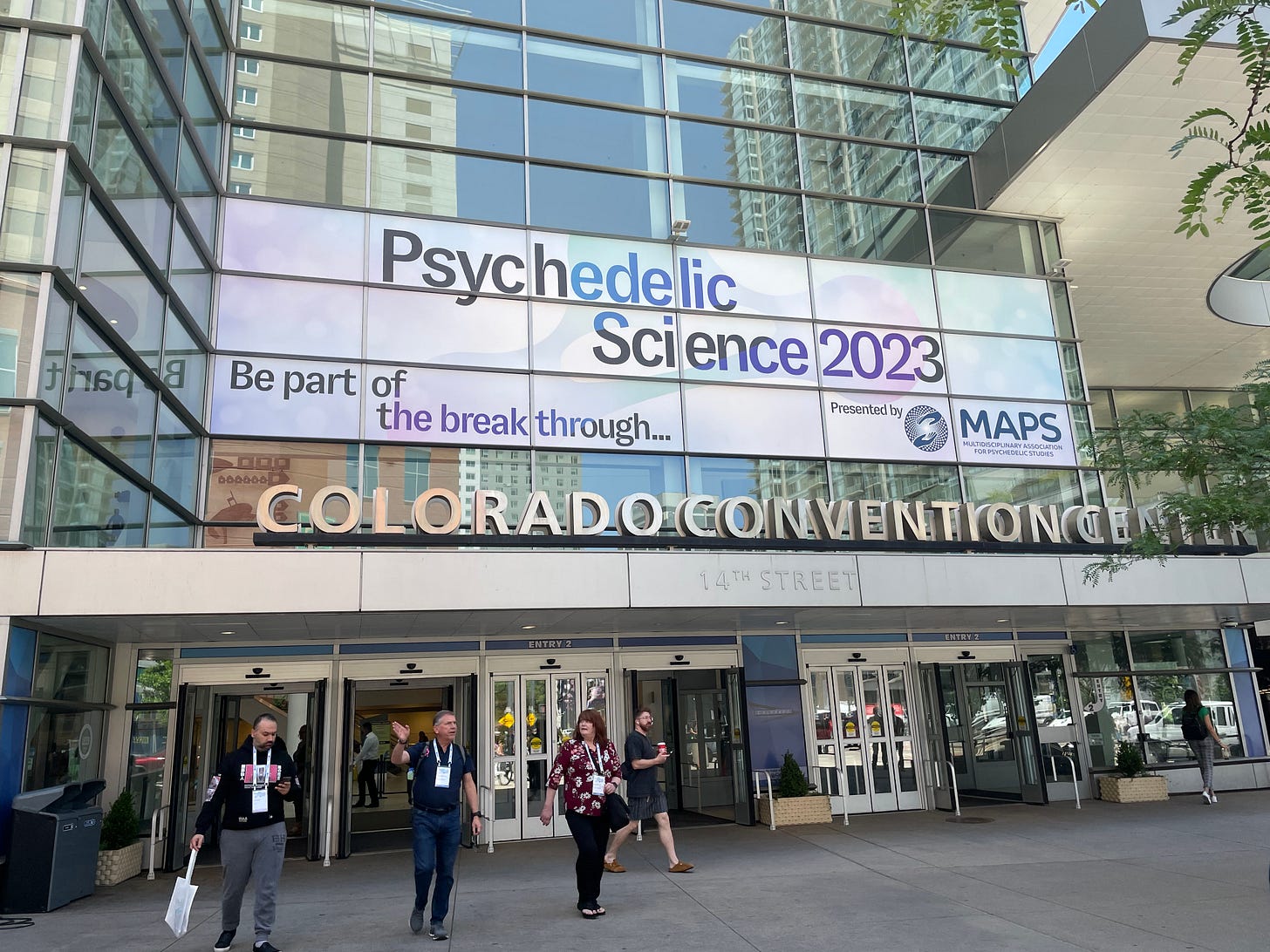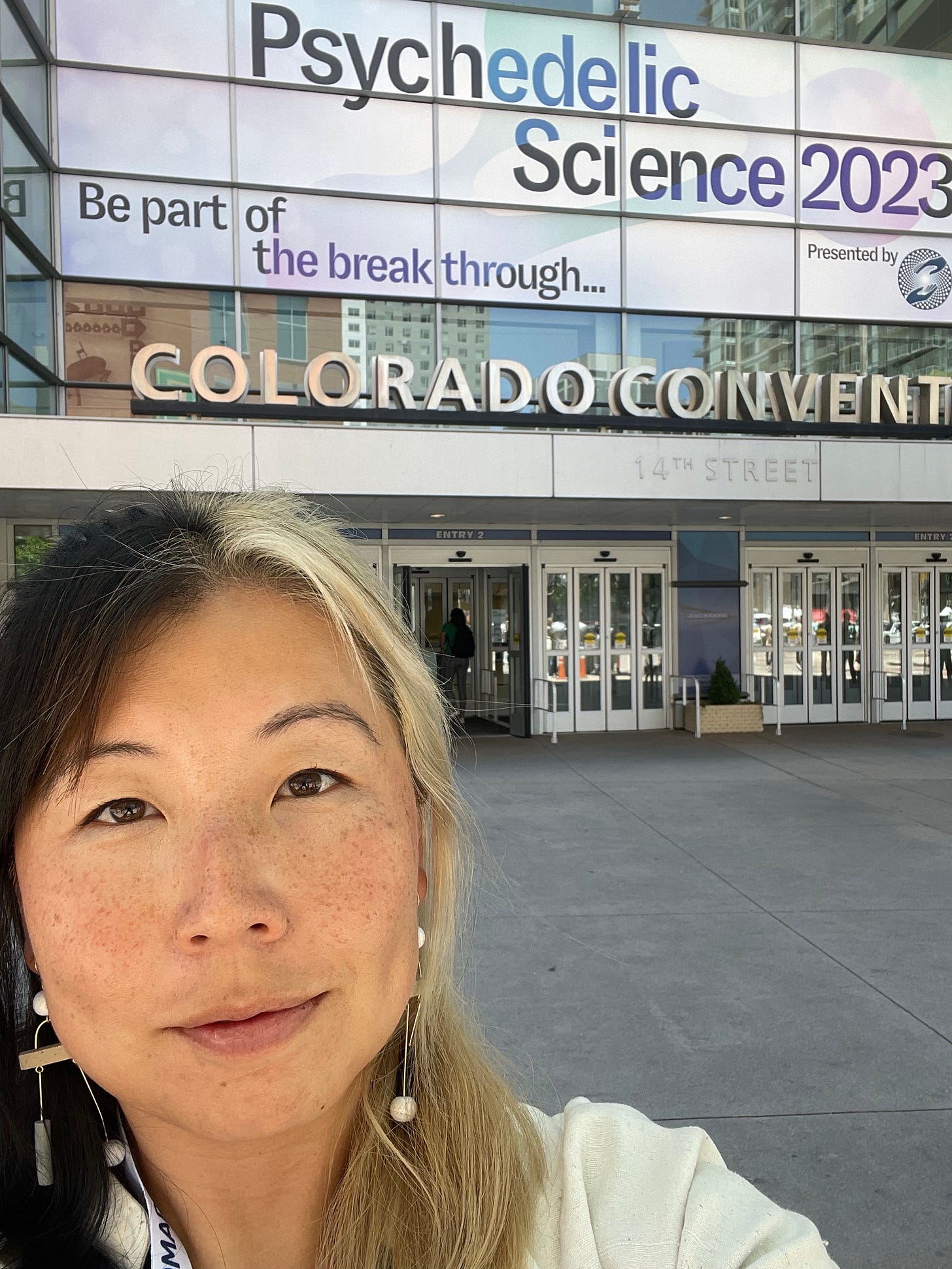Welcome back to The Microdose, an independent journalism newsletter brought to you by the U.C. Berkeley Center for the Science of Psychedelics. This week, we’re bringing you daily dispatches from Psychedelic Science 2023, billed as the largest-ever psychedelics conference. I’ll be your guide popping into sessions, exploring exhibitor tables and art installations, and asking questions.
For the next few days, some 11,000 scientists, advocates, mental health professionals and sundry psychonauts will descend on Denver’s convention center for Psychedelic Science 2023, a conference held by the Multidisciplinary Association for Psychedelic Studies’ (MAPS). MAPS is perhaps the country’s best-known psychedelics research and advocacy organization. Founded in 1986 by Rick Doblin, MAPS has supported clinical trials investigating the efficacy of MDMA and psilocybin in treating PTSD and depression. The Psychedelic Science conference was first held in 2010, and again in 2013 and 2017. Attendees this week paid up to $1800 to attend for three days. According to MAPS, this year’s meeting will be the largest yet.
The conference will feature over 300 speakers discussing a wide array of interests and topics in the psychedelics world, from clinical trial results and the practice of psychedelic therapy to psychedelic legislation and business. Some famous names in the speaking and performing lineup include Aaron Rodgers, quarterback for the NFL’s New York Jets, actor and rapper Jaden Smith, musician Melissa Etheridge, Texas governor Rick Perry (R), and Colorado governor Jared Polis (D).
It’s no surprise MAPS tapped Polis for a keynote, and that the organization chose to hold their conference in Colorado. In 2019, Denver was the first city in the nation to pass an initiative prohibiting the city from spending resources on prosecuting people for psilocybin-related charges. Last year, Colorado voters passed Proposition 122, which made psilocybin state-legal and laid the groundwork for service centers where people can experience a guided trip. As I walked up to the Colorado Convention Center this morning, I noticed people gathered to do yoga and smoke cigarettes on a patch of astroturf outside. (Public stretching seems popular with this crowd; I saw one attendee lie down right by the speakers’ stage to do some hip-openers.)
In addition to conference sessions, hundreds of psychedelic companies and organizations have tables in the exhibitor hall, and groups are holding an eclectic assortment of satellite events around town, including psychedelic drag bingo, a comedy show roasting the psychedelic community, and a benefit concert for MAPS featuring Reggie Watts, Eric Andre, and the Flaming Lips.
Tuesday’s sessions were pre-conference workshops targeting specific skills and interests, such as psychedelic-assisted therapy, psychedelic law, and psychedelic medicine churches. I registered for the only free workshop, which was geared towards business attendees new to the field. The workshop’s emcee was Lewis Goldberg, managing partner at KCSA, a communications firm employed by psychedelics organizations including MAPS, Reason for Hope, and Delix. He kicked off the session by encouraging attendees to look around at one another. “What’s happening now is going to shape years to come,” he told the audience.
The workshop featured five panels touching on different aspects of psychedelic business including investment opportunities, manufacturing, clinics and retreats, and public perception of psychedelics. A major theme of discussion was balancing hype and hope. On the investors’ panel, venture capital firm JLS Fund co-founder Lindsay Hoover compared investing in psychedelics to funding the early days of a new technology like virtual reality or the internet. David Feldman, co-founder of management consulting firm Skip Intro Advisors LLC likened the recent crash in stock valuations for publicly traded psychedelic companies to the dot-com bubble: “It’s weeding out companies that shouldn’t have gone public in the first place,” he said.
In other session panels, speakers expressed worry that change in the psychedelic space is happening too quickly. “What keeps me up at night is regulatory access,” said Najla Guthri, CEO of KGK Science + Wellbeing Digital Sciences, a mental healthcare company. She said that the push towards creating legal psychedelic markets and consumer-facing products could mean psychedelics end up much like cannabis, where regulatory and research progress have slowed while dispensaries have proliferated. Guthri’s co-panelist, Freedom Biosciences CEO Dina Burkitbayeva, said she didn’t think psilocybin would be legal as a consumer product for another 10 years, if ever. What worries her is the wide availability of unregulated mushroom chocolates. “People are under the impression that psychedelics are legalized,” she said.

The session also revealed some interesting behind-the-scenes tidbits and hot takes from panelists. Michael Huttner, CEO and Co-Founder of Next Titan Capital, an investment bank, said that he’d had a hand in crafting Colorado’s Prop 122 — and had originally pushed for it to go into effect on June 1, in time for this conference. On a panel discussing clinics and retreats, Joël Brierre, founder of 5-MeO-DMT retreat company Tandava, said he thought all psychedelic practitioners needed to have direct experience with the drugs. “Someone who has never done psychedelics has no business trying to serve them,” he said, as the room burst into applause and supportive hollers. When Goldberg, the session’s emcee, posed a similar question to an assembled panel of journalists — Should journalists have direct experience with psychedelics to report on the topic ethically? — panelists mostly agreed that experience with these substances could be valuable. But, as journalist Olivia Goldhill, a reporter for STAT, pointed out, requiring such first hand experience could be problematic and could exclude people with certain medical and mental health conditions.
That’s it for today! We’ll be back in your inbox tomorrow with more from the conference.
If you’re at the conference, please say hello if you see me, and feel free to send tips to themicrodose@berkeley.edu.
If you know anyone who might like the latest on psychedelics in their inbox, feel free to forward this to them, or click below.







